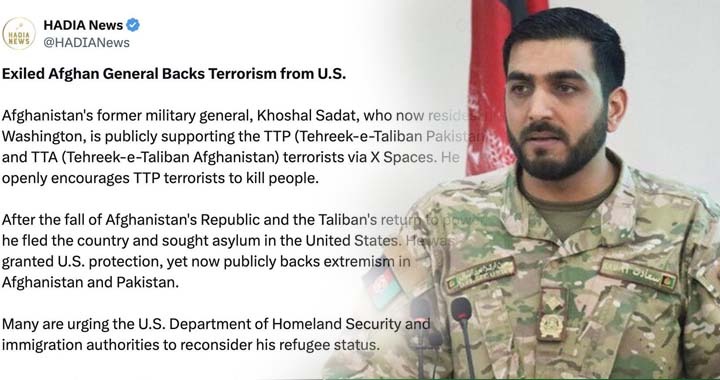Once hailed as a defender of democracy and peace, a former Afghan general has now emerged as the embodiment of hypocrisy and moral decay. From the safety of exile in the United States, he glorifies the very extremists who ravaged Afghanistan groups such as Fitna al Khawarij (the banned Tehreek-e-Taliban Pakistan) and the so-called Tehreek-e-Taliban Afghanistan, both responsible for decades of bloodshed and despair.
His recent remarks on X Spaces reveal a painful truth about the fractured conscience of certain Afghan elites: they speak the language of peace abroad while endorsing violence at home. This duplicity has long defined the Afghan establishment, where declarations of reform coexist with the quiet justification of terror.
For the countless families who lost loved ones to suicide attacks and ambushes, his new rhetoric is an insult to their suffering. Every word of praise he offers for these militant groups pours salt into the wounds of mothers, fathers, and children who continue to live with the scars of Afghanistan’s endless war.
This moral collapse is not an isolated case but part of a wider phenomenon among some former Afghan officials and military officers who, after fleeing abroad, have begun aligning themselves with extremist ideologies to remain relevant. Their hypocrisy is both political and moral a betrayal of the very ideals they once claimed to defend.
The transformation of this ex-general, once seen as a protector of his nation, into an apologist for terror is a stark reminder of Afghanistan’s enduring tragedy. The republic may have fallen, but the greater collapse lies in the loss of conscience among those who once wore its uniform with pride.
History will not remember him as a guardian of peace but as a man who surrendered his integrity for relevance a general with two faces, whose words today echo the betrayal of a nation still bleeding from the wounds of his silence.





